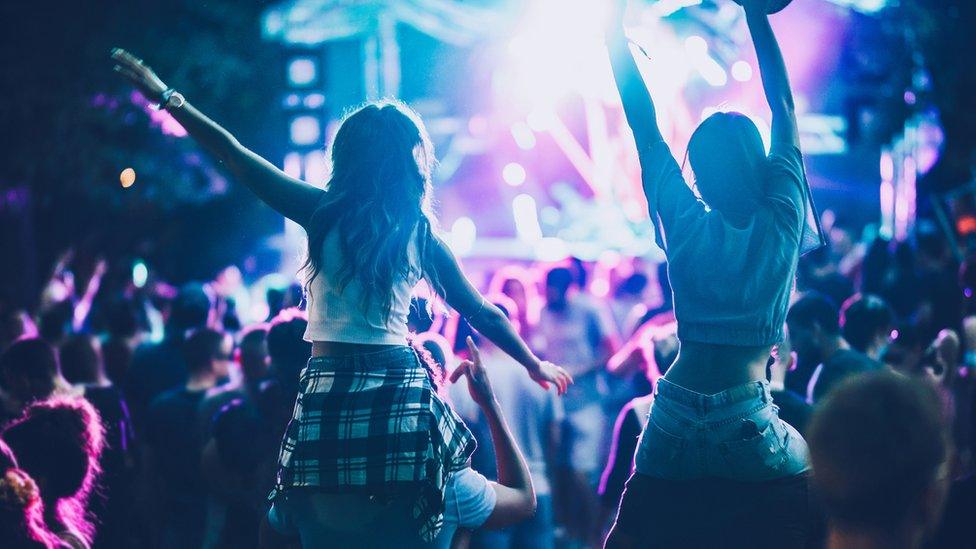Music festival lighting 'can trigger epileptic fits'
- Published

Strobe lighting at music festivals can increase the risk of epileptic seizures, researchers have warned.
The Dutch team said even people who have not been diagnosed with epilepsy might be affected.
Their study was prompted by the case of a 20-year-old, with no history of epilepsy, who suddenly collapsed and had a fit at a festival.
The Epilepsy Society said festivals should limit lighting to the recommended levels.
Epilepsy is a condition that affects the brain. There are many types, and it can start at any age.
Around 3% of people with epilepsy are photosensitive, which means their seizures are triggered by flashing or flickering lights, or patterns.
The Health and Safety Executive recommends strobe lighting should be kept to a maximum of four hertz (four flashes per second) in clubs and at public events.
'Life-affirming'
The researchers studied electronic dance music festivals because they often use strobe lighting.
They looked at data on people who needed medical care among the 400,000 visitors to 28 day and night-time dance music festivals across the Netherlands in 2015. The figures included 241,000 people who were exposed to strobe lights at night-time festivals.
Thirty people at night-time events with strobe lighting had a seizure, compared with nine attending daytime events.
The team, led by Newel Salet of the VU Medical Centre in Amsterdam, writing in BMJ Open, said other factors could increase the risk of seizures.
But they added: "Regardless of whether stroboscopic lights are solely responsible or whether sleep deprivation and/or substance abuse also play a role, the appropriate interpretation is that large [electronic dance music] festivals, especially during the night-time, probably cause at least a number of people per event to suffer epileptic seizures."
They advise anyone with photosensitive epilepsy to either avoid such events or to take precautionary measures, such as getting enough sleep and not taking drugs, not standing close to the stage, and leaving quickly if they experience any effects.
Mr Salet told 大象传媒 News: "If a person has no predisposition for epilepsy, then factors like strobe lighting will not have any effect. However, most people are unaware of this predisposition they might have: more than a couple of cases explicitly reported this to be the first time they experienced an epileptic fit."
Clare Pelham, chief executive at the Epilepsy Society, said: "The festival season has become something of a rite of passage. We would encourage festival organisers to at least warn visitors that they are using strobe lighting so that festival-goers can decide whether it will be safe for them to attend before buying their tickets.
"But it would be really life-affirming, in these days when we aspire to inclusivity, if organisers could do the responsible thing and keep the strobe lighting at a rate that should not pose a risk.
"The festival season is all about having a good time, but that should include everyone together, in a safe and supportive environment."
- Published16 April 2019
- Published9 April 2019
- Published10 December 2018